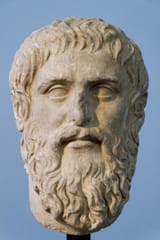Anonymous
6/25/2025, 7:48:10 PM No.24495807
Can any Platofag explain this passage?
>VISITOR: Now if that which is has the characteristic of the one in this way, will it be one and a whole? Or shall we simply deny it's a whole at all?
>THEAETETUS: That's a hard choice.
>VISITOR: You're right. If it has the characteristic of somehow being one, it won't appear to be the same as the one. Moreover, everything will then be more than one.
>THEAETETUS: Yes.
>VISITOR: Further if that which is is not a whole by possessing that as a [c] characteristic, but rather just is the whole itself, that which is will turn out to be less than itself. [!]
>THEAETETUS: Certainly.
>VISITOR: And because it's deprived of itself, that which is will be not being, according to that account.
>THEAETETUS: Yes.
>VISITOR: And everything will be more than one, since that which is and the whole will each have its own separate nature.
>THEAETETUS: Yes.
>VISITOR: But if the whole is not at all, then the very same things are true of that which is, and in addition to not being, it would not
The problem I have is with the passage marked with the exclamation mark.
>VISITOR: Now if that which is has the characteristic of the one in this way, will it be one and a whole? Or shall we simply deny it's a whole at all?
>THEAETETUS: That's a hard choice.
>VISITOR: You're right. If it has the characteristic of somehow being one, it won't appear to be the same as the one. Moreover, everything will then be more than one.
>THEAETETUS: Yes.
>VISITOR: Further if that which is is not a whole by possessing that as a [c] characteristic, but rather just is the whole itself, that which is will turn out to be less than itself. [!]
>THEAETETUS: Certainly.
>VISITOR: And because it's deprived of itself, that which is will be not being, according to that account.
>THEAETETUS: Yes.
>VISITOR: And everything will be more than one, since that which is and the whole will each have its own separate nature.
>THEAETETUS: Yes.
>VISITOR: But if the whole is not at all, then the very same things are true of that which is, and in addition to not being, it would not
The problem I have is with the passage marked with the exclamation mark.
Replies:
